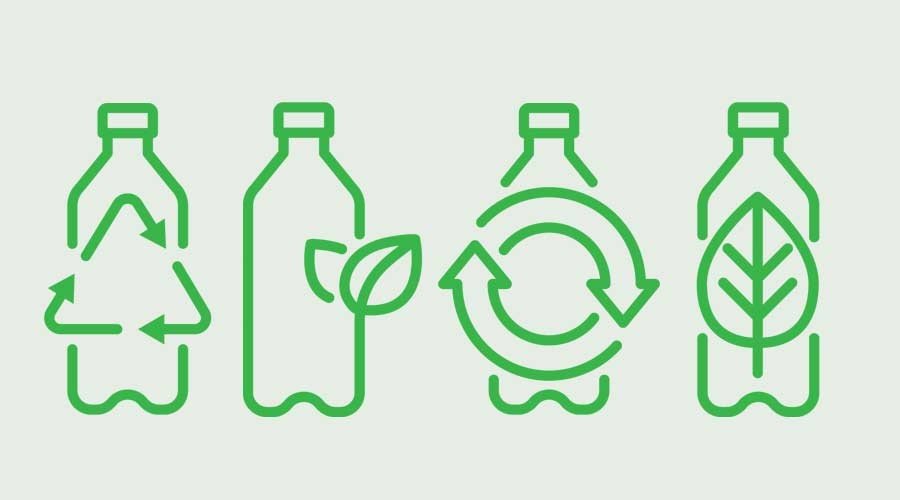What Does Stewardship Mean to Us?
At Northern Rockies Nature Journaling, stewardship is at the heart of our mission. We believe in using nature journaling as a way to inspire individuals to care for and protect the environment. We can’t appreciate the beauty of nature without actively contributing to its preservation, which is why we want to have a highlighted focus on stewardship. As people engage with nature and with each other, we hope to inspire lasting stewardship that will benefit the environment we all share.
This Month’s Stewardship’s Focus:
Reducing Plastic Waste!
Why is Reducing Plastic Waste Important?
We get it! Using plastic is convenient, and in many cases, seemingly unavoidable. It almost seems like every time you leave your house, you take plastic with you— like bags from the grocery store, cups from your coffee run, or utensils from your lunch on-the-go. However, this is exactly what we must take effort to reduce plastic waste! Single-use plastics are harming our environment and future generations because even after you throw them out, they don’t just disappear—they break down into microplastics, which can pose serious risks. Microplastics can contaminate water (making it unsafe for ecosystems and human use), can accumulate in soil (which can affect plant growth and grow into our veggies), and can have human health risks. However, by making small changes and by helping clean-up where we can, we can work together to create a cleaner, healthier future for our communities!
Tips and Tricks to Reduce Plastic Waste:
Bring a reusable water bottle.
This one is super easy but effective too! Instead of constantly buying plastic water bottles, buy a reusable one and fill it with filtered tap water. Not only does this cut down on plastic waste, but it also saves money and in the summer, keeps your water fresh and cold longer. Additionally, some coffee shops have the option to bring your own mug so you can cut down on waste from coffee runs!
Use reusable straws/utensils.
Personally, I know I get food from outside a lot, and I’m sure many of you guys do too. So maybe next time, try to remember to bring your own utensils and a reusable straw. For utensils, you can just grab your household ones or you could purchase “portable cutlery”, which is still plastic but is reusable and built to last. Some places have biodegradable (not made of plastic) straws, which is a great step, but bringing your own is a great option too.
Say no to more plastic bags.
Almost anytime you go shopping, you bring your items home in a plastic bag but bringing your own can make a big difference. You can purchase a reusable cloth tote, which can come in so many fun designs, or even just keep using the same plastic bag over and over again. A single plastic bag takes hundreds of years to break down, so switching to a reusable option is a small change with a big impact!
Look for biodegradable or non-plastic packaging.
This one is a little more tricky, but for item that you were planning to purchase anyways, look if there is a more sustainable option. For example, you can get bar soap instead of soap that comes in plastic bottles, or look for refillable options.
Avoid plastic wrapped snacks.
Individually-wrapped snacks, like granola bars, chips, etc. can create a lot of plastic waste. Try buying in bulk and portioning snacks into reusable containers instead.
NOTE: I know you might be noticing a lot of tips to “buy” a new reusable item, but please remember re-purposing what you have is ultimately the best option to reducing waste! If you have plastic bags, bottles, or utensils already lying around your house, it’s much more sustainable to use those for as long as they last. Saving the environment doesn’t have to break the bank! 🙂

How to Incorporate Less Plastic Waste in Your Nature Journal:
Choose refillable pens and mechanical pencils instead of disposable ones.
Use journals with cardboard or cloth covers instead of plastic-bound notebooks. They’re more durable and better for the planet!
Heading outside to journal? Pack your supplies in a reusable bag or pencil pouch instead of a plastic one.
Buy second-hand or upcycled art supplies when possible. You never know what gems you’ll find for a great price—and it’s better for the Earth!
Community Efforts:
Because we’re all in this together!
Last month’s focus was on saving water, and we talked about how important it is to save water and protect our ecosystem. We suggested you can turn off taps, take shorter showers, only run full loads of the washing machine/dishwasher, and spread the word. Did you try any of these out?
So, how did you do?
Email us your stewardship story for a chance to get featured on this website!
Did you try any of our tips, and if so, how did they work out? Did you have any other tips for conserving water that we didn’t mention?





